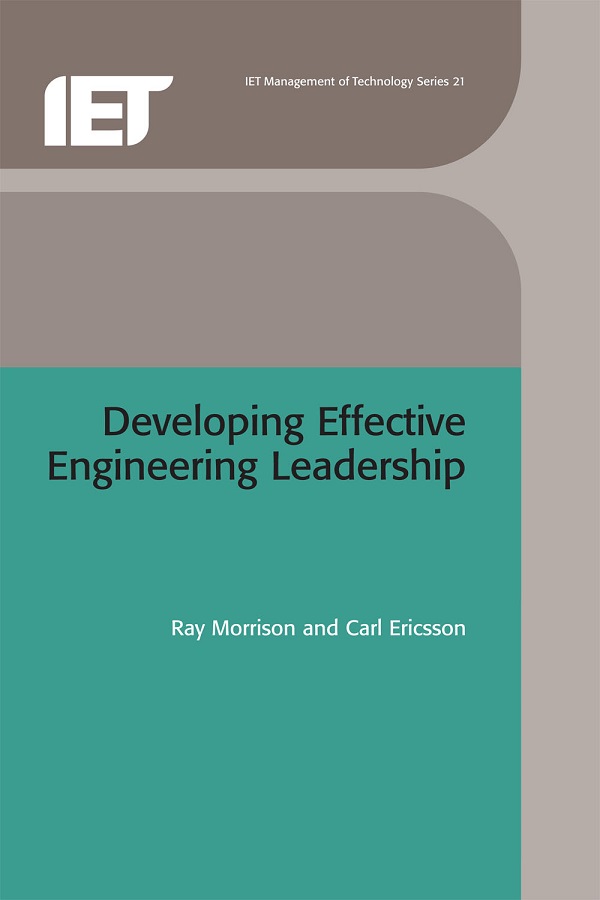- Agricultural Engineering and Technology
- Applied Physics
- Built Environment
- Computing and Networks
- Control, Robotics and Sensors
- Electrical Regulations
- Electromagnetics and Radar
- Energy Engineering
- Healthcare Technologies
- History and Management of Technology
- IET Codes and Guidance
- Manufacturing
- Materials, Circuits and Devices
- Model Forms
- Security
- Telecommunications
- Transportation

Developing Effective Engineering Leadership
by Ray Morrison, Carl Ericsson
Engineering companies and other organizations face many serious challenges in the 21st Century. One that is now becoming widely recognized is the loss of corporate knowledge through staff turnover, whether it is natural or forced through downsizing or delayering. A company's store of knowledge and expertise is an asset built up through the learning and experience of its employees.
In this book the authors show that such loss of experience and knowledge can substantially erode corporate culture and impact upon a company's ability to develop and reinvent itself in response to its market. The concentration is on process, culture, structure and leadership, to assist engineering organizations in managing their valuable knowledge resources and the people who possess them. It provides effective methodologies to devise solutions to the real challenges faced by engineering managers today.
Illustrated with scenarios and practical examples, which will be familiar to engineers worldwide, this book represents great value to all those in engineering management practice. In addition, as management increasingly appears within the syllabus of engineering courses, it will interest engineering students preparing for careers in industry, as well as their educators.
About the Author
Ray Morrison works as a senior manager in engineering workforce development for Lockheed Martin Aeronautics Company, Georgia, USA. His field of expertise includes engineering education and training, software engineering, engineering process/methods, and systems engineering. He has a background in ISO 9001 assessment and verification and SEI/CMM planning, preparation and deployment. He gained his Masters in Communications Technology and Ph.D. in Technical Education from the University of Missouri, USA.
Carl Ericsson works for Lockheed Martin Aeronautics Company as an engineering leadership development-program manager. He has 17 years' experience as a training professional, including comprehensive knowledge of organizational behaviour, process analysis, instructional design process, and adult learning principles. He has degrees in Systems Science and Aeronautical Technology, as well as an MBA and a Ph.D. in Organizational Psychology, all from the University of Tennessee, USA.
Publication Year: 2002
Pages: 180
ISBN-13: 978-0-85296-214-5
Format: HBK
